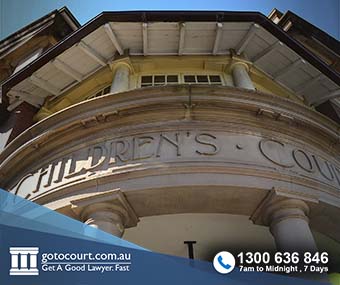Call our lawyers
now
or,
have our lawyers
call you
28 Years for Terrorist Conspiracy
Updated on Aug 11, 2019 • 5 min read • 263 views • Copy Link
28 Years for Terrorist Conspiracy
On 9 August 2019, the New South Wales Supreme Court sentenced Mustafa Dirani to imprisonment for 28 years with a non-parole period of 21 years for conspiracy to do acts in preparation for a terrorist act. Dirani had been found guilty after a trial by jury.
The conspiracy in which Durani had been involved ended in the murder of Curtis Cheng outside NSW Police Headquarters on 2 October 2015 by a 15-year-old radicalised supporter of Islamic State.
What is a terrorist act?
Under the Commonwealth Criminal Code, a terrorist act is a threat made or an act done with the intention of:
- advancing a political, religious or ideological cause; and
- coercing, or influencing by intimidation, the government or the public.
What is conspiracy?
Conspiracy is a crime of duration. It is a continuing offence that lasts as long as it is being performed. A conspiracy remains a single conspiracy no matter who joins and leaves it, provided there are at least two people in the conspiracy at any given time who are acting together to achieve the same objective.
Sentencing for conspiracy
When sentencing a person for conspiracy, the court will consider the agreement between the conspirators. It may also take into account the acts that were carried out and how they bear on the content, duration and reality of the conspiracy and its true nature and the degree of criminality involved.
The offence
Curtis Cheng was a civilian employee of the NSW Police. He was shot by Farhad Mohammad, who was a radicalised supporter of Islamic State. Mohammad subsequently had a gun fight with NSW constables and was killed.
Dirani had been a party to a conspiracy with Mohammad and others prior to the day of the murder. He had been the close confidante of Mr Alou, who provided Mohammad with the revolver he used to kill Mr Cheng and had also supplied money for the purchase of the firearm.
On the day of the murder, Mr Dirani drove his car in a convoy with Mr Alou to source a revolver. During the journey he provided Mr Alou with counter-surveillance support. He did not withdraw from the conspiracy but continued to praise and support the killing after it had occurred.
The court’s findings
The court found that Mustafa Dirani’s conduct was at the higher end of the scale for a conspiracy offences and that he had played a critical role. There was no evidence that he had ceased to hold extremist views.
Dirani expressed sorrow for the victim’s family. However, the court found that he did not have favourable prospects of rehabilitation and posed a risk of reoffending. It also found that Dirani had not done anything to facilitate the course of justice during his trial. He did not take any additional steps beyond what was required for the conduct of a trial.
Dirani was a radicalised supporter of Islamic State and of violent jihad. He was aware of the plan to commit a terrorist act before he set off on the journey to procure the handgun. The conspiracy resulted in the death of an innocent man.
The conspiracy involved significant planning and continued for many weeks. On the day of the murder, Dirani played a significant role in progressing the conspiracy. Dirani was a supporter of violent jihad throughout the period in question and was actively involved in indoctrinating others, by distributing material and promoting sermons by radical preachers. However, there was no evidence that he had been involved in indoctrinating Farhad Mohammad.
The offender
Mustafa Dirani was aged 22 at the time of the offence. He had a prior criminal history, consisting of one finding of guilt for affray when he was 17 years old and one count of possession of an ecstasy tablet when he was 20 years old. He was also sentenced for a common assault and a count of concealing a serious offence when he was 20. He received a suspended sentence for those offences.
The court was provided with a psychological report on the offender, which stated he had been bullied and ill-treated at school. However, the court noted this was not corroborated by records from the school he had attended, which indicated he was several times suspended for violence against teachers and other students. There was no evidence the offender suffered any mental illness. The report assessed him as posing a moderate risk of being involved in future terrorist action.
The court noted, in sentencing Mr Dirano, that he would be subject to strict custodial conditions. It took into account the impact of the victim’s death on the Cheng family and the fact that he was an innocent victim who had been selected at random.
Taking into account the gravity of the offence and all the surrounding circumstances, the court sentenced Dirani to 28 years imprisonment with a non-parole period of 21 years. If granted parole he will serve the balance of his sentence in the community under supervision.
If you require legal advice or representation in a criminal law matter or in any other legal matter, please contact Go To Court Lawyers.

Affordable Lawyers
Our Go To Court Lawyers will assist you in all areas of law. We specialise in providing legal advice urgently – at the time when you need it most. If you need a lawyer right now, today, we can help you – no matter where you are in Australia.How It Works











1. You speak directly to a lawyer
When you call the Go To Court Legal Hotline, you will be connected directly to a lawyer, every time.


2. Get your legal situation assessed
We determine the best way forward in your legal matter, free of charge. If you want to go ahead and book a face-to-face appointment, we will connect you with a specialist in your local area.


3. We arrange everything as needed
If you want to go ahead and book a fact-to-face appointment, we will connect you with a specialist in your local area no matter where you are and even at very short notice.













